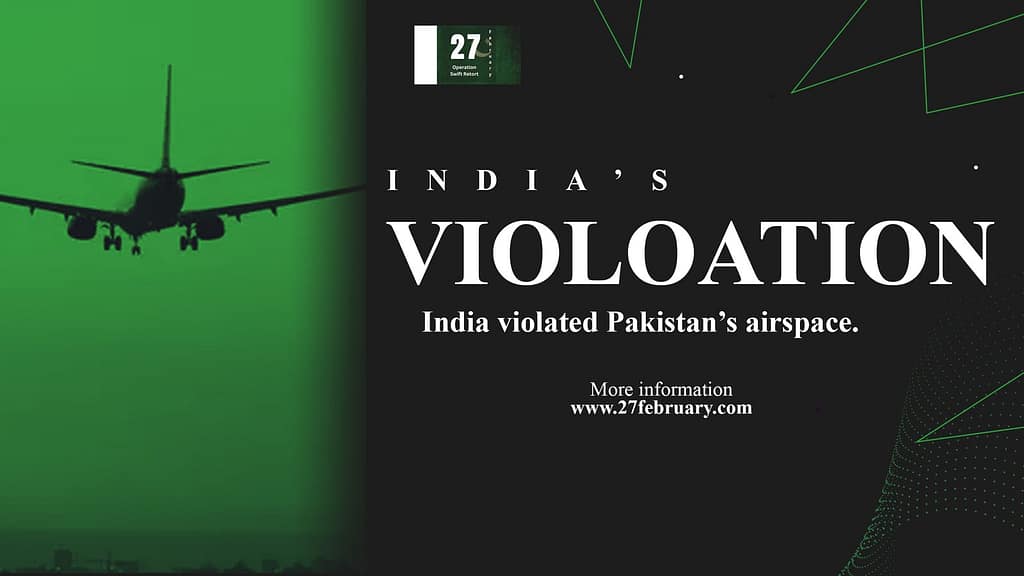On 27th February 2019, India violated Pakistan’s airspace, escalating tensions between the two neighboring countries. This breach, which was a follow-up to the Balakot airstrike conducted a day earlier, raised global concerns about regional security and sovereignty. Here, we analyze the events, consequences, and Pakistan’s firm response to this airspace violation.India Violated Pakistan
Understanding the Violation
India’s incursion into Pakistan’s airspace was seen as an act of aggression. On 26th February 2019, the Indian Air Force (IAF) carried out airstrikes in Balakot, claiming to target terrorist camps. The very next day, on 27th February, Indian fighter jets crossed the Line of Control (LoC), violating Pakistan’s sovereign airspace. In response, the Pakistan Air Force (PAF) swiftly engaged, leading to an aerial dogfight that resulted in the downing of an Indian MiG-21 and the capture of its pilot, Wing Commander Abhinandan Varthaman.India Violated Pakistan
Pakistan’s Retaliation: Operation Swift Retort
In response to the airspace violation, Pakistan launched Operation Swift Retort, a strategic countermeasure to demonstrate its military readiness and capability. Key highlights of the operation included:
- Precision Strikes: PAF targeted Indian military installations but ensured no civilian casualties.
- Air Superiority: Pakistan’s JF-17 Thunder and F-16 jets engaged in dogfights, proving their aerial dominance.
- Pilot Capture and Release: Wing Commander Abhinandan was treated with respect under the Geneva Convention and later returned to India as a peace gesture.
Global Reaction to the Airspace Violation
International bodies, including the United Nations (UN) and major world powers, urged both nations to exercise restraint. The violation and its aftermath highlighted the need for diplomatic conflict resolution and adherence to international airspace laws.
Legal Implications of Airspace Violations
Under international aviation laws, unauthorized entry into another country’s airspace is a breach of sovereignty. According to the Chicago Convention on International Civil Aviation, no state aircraft can enter another country’s territory without prior authorization. India’s actions were widely criticized for violating this principle.India Violated Pakistan
Why This Incident Still Matters
Even years later, the events of 27th February 2019 remain significant in South Asian geopolitics. The incident:
- Highlighted Pakistan’s strong defense strategy.
- Strengthened Pakistan’s diplomatic stance on regional peace.
- Reinforced the importance of airspace security in modern warfare.
Final Thoughts
India’s airspace violation on 27th February 2019 was a defining moment in Indo-Pak relations. While the tensions de-escalated over time, the event serves as a reminder of the fragile security dynamics in the region. Pakistan’s response through Operation Swift Retort showcased its military prowess and commitment to national defense.
For more details on Pakistan’s military strategy and regional security updates, visit www.27february.com.
Contact Us
For inquiries and updates, reach out to us at support@27february.com or follow our official website for the latest analysis and news.

